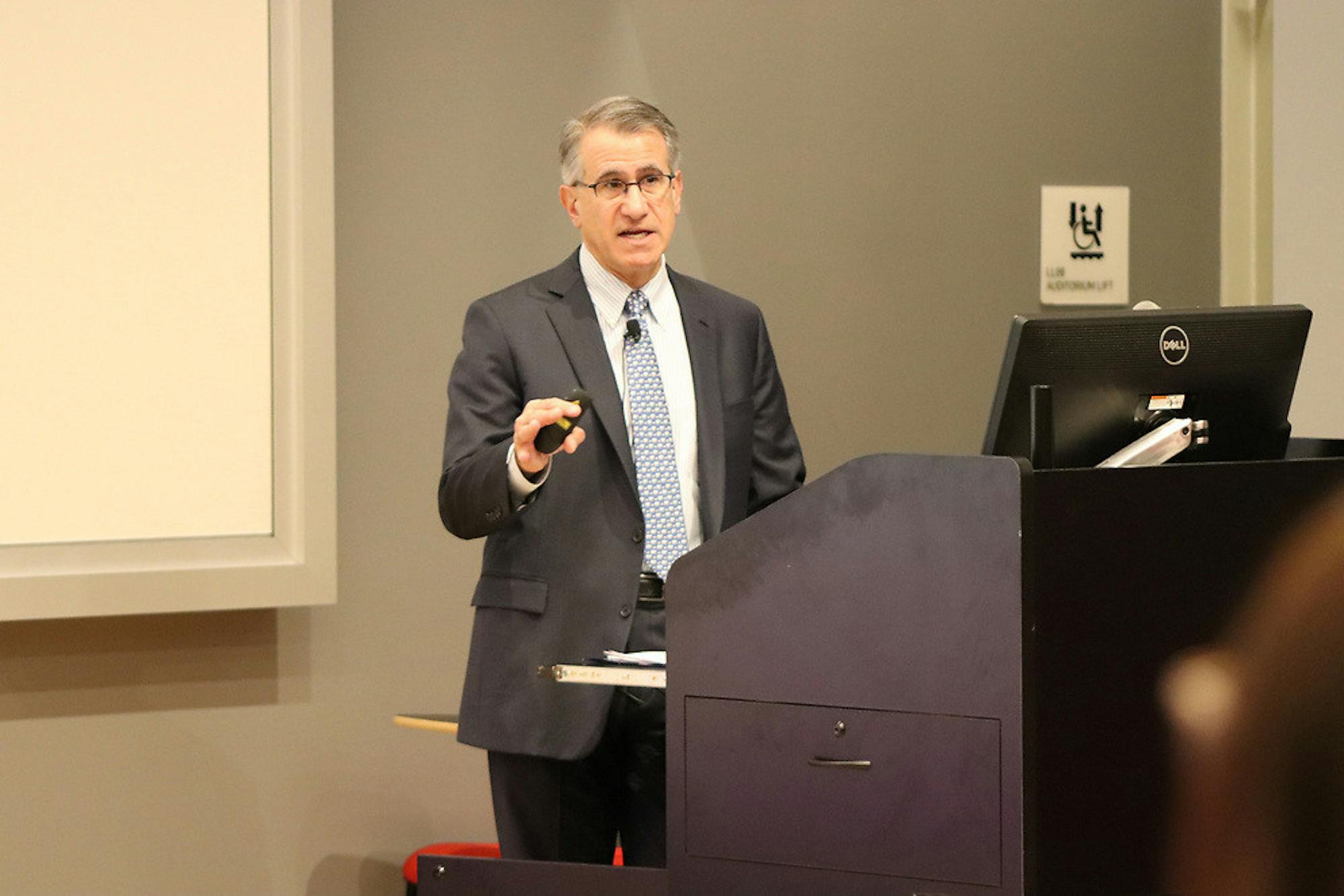University President Anthony Monaco announced the completion of former U.S. Attorney Donald K. Stern's report on Tufts’ ties to opioid manufacturer Purdue Pharma and the Sackler family in a town hall last Friday.
The report will be presented to the Board of Trustees at its upcoming November meeting before being released to the public by the end of the year, Monaco said.
“We’re hyperfocused on this, but I will have something to say publicly hopefully by the end of the calendar year,” Monaco said.
The report was written after an independent investigation by Stern into donations to the university from the billionaire family widely blamed for the opioid epidemic and the influence that the family may have exerted over the university. These allegations surfaced in a lawsuit against the family brought by Massachusetts Attorney General Maura Healey and a Tufts Daily investigation.
The town hall consisted of a 35 minute PowerPoint presentation covering a range of subjects, including the recently released Mental Health Task Force report, the newly created Bias Response Teams (BRTs) and the university’s budget, before taking a few audience questions at the end.
Monaco devoted the biggest chunk of his presentation to mental health on campus.
The rate of students using Counseling and Mental Health Services (CMHS) on campus has risen by about one percentage point per year on the Medford campus from around 14% of students in 2005 to 28% this year, a rate approximately five to 10% higher than the national average, according to Monaco.
He explained that this was likely because Tufts has fewer barriers to access than other institutions and has higher quality services.
Monaco explained that the increasing severity of cases is even more worrying than the increasing quantity, as the university has seen a spike in cases of acute distress, including bipolar disorder, major depressive disorder, suicidal ideation and self harming.
Monaco spoke sympathetically of the impact that these issues have on the students struggling with them, as well as the impact on their friends, classmates, parents and professors.
“I can hear lots of students who feel stressed by having one of their friends go through this and feeling that they’re kind of watching out for them,” he said. “That’s not easy for students at this age.”
He said the university did not have good policies for early identification of students with mental health issues compared to other universities and that the medical leave policy was difficult for students to navigate.
“We cleaned all that up,” he said.
The president also touched on the financial challenges the trend entails, especially the increased need for CMHS funding, personnel and facilities, and said he will work to secure philanthropic funding to confront the issue while chairing a steering committee to keep the university’s focus on the issue.
Before he tackled mental health, the president began his town hall by addressing upcoming retirements, including Vice President for Finance and Treasurer Thomas McGurty, who will step down in December, as well as lauding successful efforts to secure a series of million-dollar federal grants and the reforms to the Confucius Institute on campus.
The newly announced BRTs, which were created in response to a string of acts of hatred on campus earlier this semester, were next up on Monaco’s agenda.
He said that the BRTs are still in the planning stages, but that they will “formalize” the university’s existing responses to such incidents.
After addressing the BRTs, Monaco thanked the university community for the difficult choices it made to slim down Tufts’ budget and presented optimisticprojections for operating surpluses, ranging from $5.7 million this fiscal year all the way to $28.9 million in fiscal year 2024.
He cited the newly created University College’s efforts to reach non-traditional students like high school summer programs and renting lab space at the Boston Health Sciences Campus as key areas of revenue growth.
He warned the surpluses would be badly needed if the much-hyped recession arrives in the next few years.
Monaco wrapped up his address by announcing his desire to see Community Housing, university-owned renovated wood-frame houses for upperclassmen, expanded from the Medford side of campus to the Somerville side.
Efforts to expand Tufts housing into Somerville in the past has provoked fierce opposition from the Somerville community, and Monaco was quick to clarify that the university would like to approach the city about renovating existing new wood-frame houses “or adding one or two more” near Metcalf Hall, “not on the outlying streets” over the next few years.
While the town hall was open to administration, faculty, staff and students, the audience that filled about half of the Barnum Hall auditorium was almost entirely made up of administrators.
Monaco says Sackler investigation complete, discusses mental health at town hall

University President Anthony Monaco gave a presentation covering a range of topics, including the Stern Report, mental health and university finances at an Oct. 25 town hall in the Barnum Hall auditorium.





